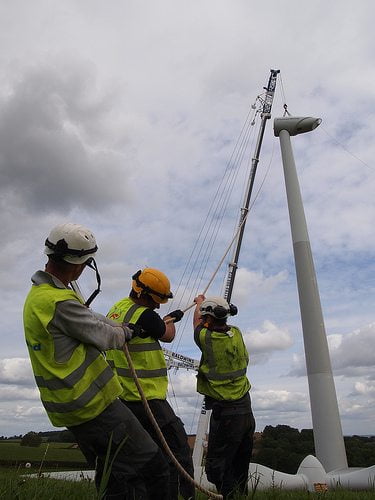

Invest
Treasury looks to extend ISA reach to peer-to-peer finance and crowdfunding
The Treasury is currently in discussions around extending the ISA regime – potentially providing savers and investors with more flexibility, transparency and control over their finances.
A working group is currently being set up in the industry to come up with a formula for how peer-to-peer lending and debt-based lending can become part of the ISA structure.
ISAs, short for individual savings accounts, are a tax efficient way to save – as the interest on an ISA isn’t taxed. The current allowance for an ISA is £5,760 or £11,520 if it’s a stocks and shares ISA. A stocks and shares ISA allows individuals to buy company shares but has the added risk of investments going down as well as up.
The peer-to-peer and debt-based crowdfunding industry have long argued that there should be a level playing field on tax for smaller retail investors. The ISA has been successful at encouraging more long-term saving and investing, and the industry believes that it is time the brand was extended to reflect changing attitudes and behaviours among mainstream investors.
The extension would work in a similar way to stocks and shares ISA accounts, but would provide consumers with more choice and flexibility. Abundance Generation, a crowdfunding platform for renewable energy projects, is one of the organisations participating in the discussions as a member of the UK Crowdfunding Association (UKCFA), the trade body representing operational donation, reward, debt and equity crowdfunding platforms.
Bruce Davis, co-founder and joint managing director of Abundance, argued that in reality what consumers can save in or into is “quite limited” at the moment.
He said, “What we are pitching is that people are disconnected at the moment from where their money goes and how it’s invested and want to take more control, and ISAs are the main vehicle by which most people make long term investments, apart from pensions.”
Allowing consumers to select what they invest their savings in means they can align their investments with their personal ethical values. Davis added that “the ability to buy into specific projects and diversify within your ISA, with relatively little investment” would appeal to investors as well as giving them more transparency.
For sustainable and ethical investors, this means they can invest in areas such as renewable energy and still benefit from tax breaks, whilst ensuring their money is supporting sustainable growth and the green economy.
Abundance’s debentures – essentially a form of IOU – typically provide a return of between 6-8%. The organisation has invested over £4 million in renewable energy projects across the UK since 2012, including in a solar project in Nottingham and a wind turbine in the Forest of Dean.
The organisation’s research also suggests that the banks’ current low interest rates means that savers are actually losing value to inflation, despite ISA tax breaks, at an average of 0.5% a year. If investors could invest in crowdfunding projects under the ISA regime, over traditional ISA accounts, consumers have the potential to receive bigger returns that surpass inflation rates.
In terms of risk, Davis said investing through a peer-to-peer ISA would present the “equivalent or lower risk” as investing in a stocks and shares ISA.
Further reading:
Consider sustainability and ethics when investing in ISAs this year
First UK Islamic ISA gives consumers ethical tax-free way to save
Budget 2013: green businesses call for sustainable ISA incentives
Why I’ll be investing my children’s junior ISA funds sustainably


 Environment12 months ago
Environment12 months agoAre Polymer Banknotes: an Eco-Friendly Trend or a Groundswell?

 Features11 months ago
Features11 months agoEco-Friendly Cryptocurrencies: Sustainable Investment Choices

 Features12 months ago
Features12 months agoEco-Friendly Crypto Traders Must Find the Right Exchange

 Energy11 months ago
Energy11 months agoThe Growing Role of Solar Panels in Ireland’s Energy Future


























